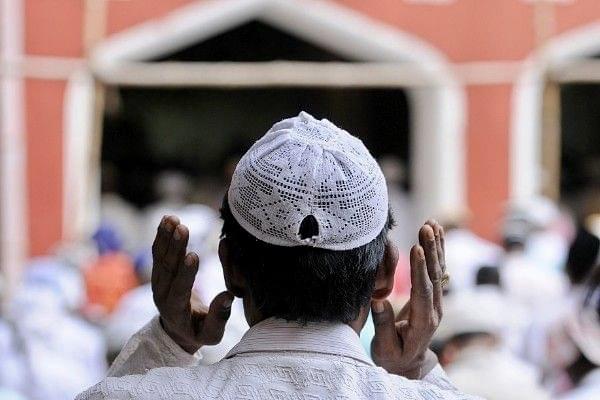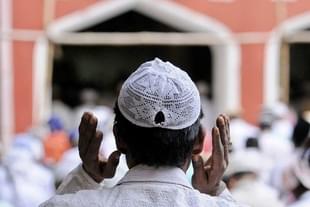Politics
How Islamist Insurgency Is Giving Rise To Radical Buddhist Elements In South, South-East Asia
M R Subramani
May 22, 2019, 09:55 AM | Updated 09:55 AM IST
Save & read from anywhere!
Bookmark stories for easy access on any device or the Swarajya app.


On 13 May, mobs from a Buddhist majority area went on a rampage in Sri Lanka’s Kurunegala district and attacked shops and homes of Muslims. The attack was reportedly in retaliation to the 21 April Easter Sunday bombings in various churches in the island country that killed over 250 people.
The retaliatory attack has led to curfew being clamped in entire Sri Lanka, while the government blocked social media platforms such as WhatsApp and Facebook. Dozens of people were arrested in connection with the mob attacks even as the government has promised to use “maximum force” against anti-Muslim rioters.
Last week’s mob attack brings back memories of a similar riot that took place in February-March last year. That attack was sparked off by an assault on a Sinhalese truck driver by four Muslim youth following an accident in Ampara district. The driver died of injuries later, resulting in Sinhalese mobs attacking Muslim properties.
The violence spread to other districts like Kandy, too, as Muslims retaliated forcing the Lankan government to announce a state of emergency. The island nation had witnessed similar riots in 2014 too.
The Buddhist aggression seems to be following a pattern that has been witnessed in South-East Asian countries like Myanmar and Thailand. The retaliation is a fallout of rising Islamic extremism in these countries as also in Indonesia and the Philippines.
Three years ago at a panel discussion during a workshop of a developed nation’s embassy employees, concerns were raised over the rise in radical Buddhism in Thailand and Myanmar. The reason cited for the rise in radical Buddhism was the way Islam has been radicalised in these nations.
For example, in southern Thailand, the people there are bombarded with Islamist ideas day-in and day-out. No one can work on a Friday in that part of the country and violence breaks out if anyone is employed that day.
Particularly, if a non-Muslim organisation employs a Muslim and forces him/her to work that day, then incidents of such organisations being attacked or burnt have occurred. According to 2015 census, Muslims make up nearly five per cent of Thailand’s population, but in the southern region, their presence goes up to nearly 24 per cent.
Insurgency dominates southern Thailand where education - from kindergarten to post graduation studies - has been Islamised. Even a seven-year-old kid talks of “infidel” in view of this. Teachers for private Muslim schools called “Madrasa” in the region are picked from a network of Islamists.
Moderate Muslims are unhappy with the fundamentalists and want to relocate. However, they are unable to do so since the radicals suspect they could turn informers. As a result, radical Buddhists have cropped up to take on the radical Islamist forces.
Counterextremism website says that insurgency has gained in southern Thailand as the ethnic Malay Muslims are seeking autonomy in the region. (The demand dates back to early 1900s). Many of these radicals claim to wage jihad and are asking for an Islamic sultanate.
These elements are active in the southern provinces of Pattani, Yala and Narathiwat. Attacks, however, have taken place in other places like Phuket and Prachuap Khiri Khan also.
In January this year, the extremist elements were involved in six attacks targeted against educational, Buddhist and government institutions, besides a hospital. At least four belonging to the Thai para-military force were killed, while a Buddhist teacher was lynched in the attacks.
The unfortunate part of insurgents’ growth in southern Thailand is that other terrorist organisations like al-Qaeda, Jemaah Islamiyah (JI) of Indonesia and Hezbollah Mujahideen have been using the country as a transit base and base for carrying out violent attacks.
JI had used Thailand as its base during the 2002 bombings at Bali in Indonesia. Bangkok has been unable to tackle the problem seriously since it has been facing political turmoil that has been a hurdle to take on the extremist elements.
Coups by the Thailand army have often led to differences in political settlement of the issue. After the 2014 coup, the Thai army ruled out a political settlement that would result in autonomy to southern Thailand. However, the army began talks with Mara Patani - the organisation that represents the insurgents in 2016 without any tangible result.
The insurgency has led to unrest among the majority Buddhist in Thailand, who now are demanding that Buddhism be declared the official religion. At least twice in the last 10 years, efforts have been made to make Buddhism the state religion.
Buddhists are demanding that the Thai language be made the medium of instruction in schools and Islamic schools be sidelined. They also want Shariah type of courts in southern Thailand to be abolished.
In Indonesia, the rise of Islamic State (ISIS) movement has revived the JI which was forced to lie low after the death of its key leaders in 2009. JI was responsible for the killing of 200 people in Bali in 2002.
In May last year, JI struck in a big way carrying out several suicide bomb attacks. Though Indonesians, (the country has the largest Muslim population in the world) don’t want anyone sympathising with ISIS to be allowed to live in their country, the JI threat remains.
A similar threat from radical Islamists exists in the Philippines too. In January this year, 18 people were killed and over 80 injured after two bomb blasts at a church in southern Philippines. ISIS claimed responsibility for the bombings.
Islamic radicals pose a threat in the southern province of Mindanao too. Communist rebel and Islamic radicals attacks have claimed the lives of thousands of Filipinos since 2001, when Western missionaries and tourists were kidnapped and killed by the Abu Sayyaf Group (ASG).
ASG, one of the most active Islamist organisations, has pledged support to ISIS, while the Philippine President, Rodrigo Duterte, signed a pact in July last year with the Moro Islamic Liberation Front. The pact accords an autonomous region for Muslims in Mindanao. More territories will be added after a plebiscite.
Despite all these, there have been instances of ISIS activists in the Philippines being involved in violence or being caught while trying to recruit new activists, especially children. The Islamist activities have led to retaliation. For example, soon after the Southern Philippines blast, a grenade was lobbed into a mosque near the same area, killing two preachers. Muslims make up 5.6 per cent of the total population in the Philippines.
In Myanmar, the Rohingyas have been demanding that the Rakhine state be merged with Bangladesh as they identify themselves closely with the people there. Insurgency in Rakhine dating back to the 1950s have often led to conflicts. These then finally escalated into violence this decade, when Rohingyas had to flee en masse to Bangladesh and India.
All these developments have brought the focus on South and South-East Asia, where rising Islamic insurgency is leading to unrest among people of other beliefs, particularly in Buddhist nations like Myanmar, Thailand and Sri Lanka.
The events of last week in Lanka are a grim reminder of what can give way to terrorist activities. As a backlash become imminent, it could lead to an exodus of the vulnerable people as in countries like Syria and Myanmar.
In India, the Rohingyas - Muslim Myanmar refugees - are turning to be a big problem after they fled their country following violent attacks. A similar problem could crop up from Lanka too. Already, nearly a lakh Sri Lankan Tamil refugees have been held up since the 1980s following a war between the army and the Liberation Tigers of Tamil Eelam (LTTE) seeking a separate Tamil region.
The backlash against terrorists attacks is an issue that could start affecting all countries, sooner or later. It could not just have political repercussions, but economic ones too. That’s something the world will have to watch out for.
M.R. Subramani is Executive Editor, Swarajya. He tweets @mrsubramani




